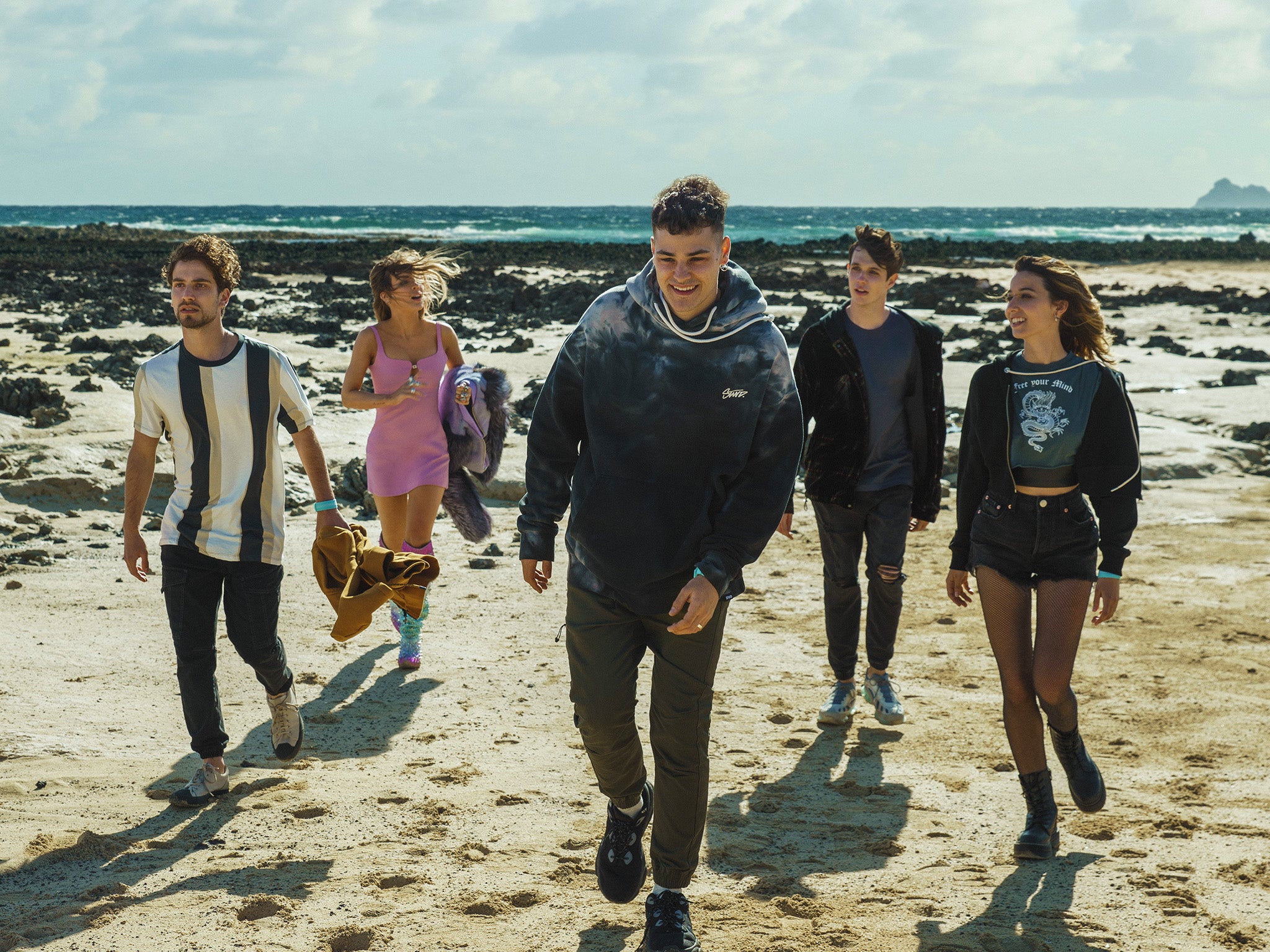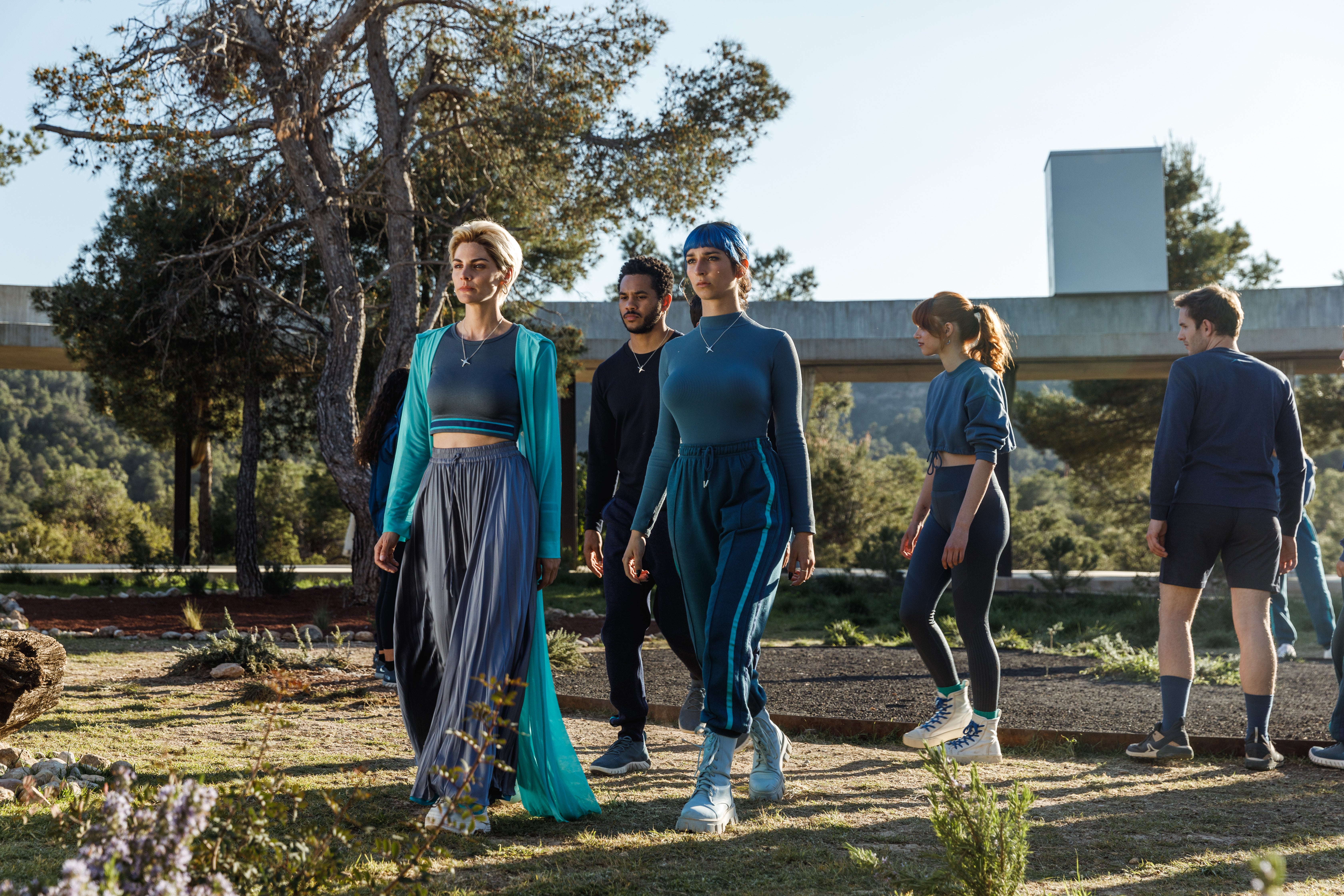Welcome to Eden wants us to question what we consider paradise
Despite so much of Netflix’s new Spanish hit not making sense, it undeniably strikes a nerve, writes Amanda Whiting


Your support helps us to tell the story
From reproductive rights to climate change to Big Tech, The Independent is on the ground when the story is developing. Whether it's investigating the financials of Elon Musk's pro-Trump PAC or producing our latest documentary, 'The A Word', which shines a light on the American women fighting for reproductive rights, we know how important it is to parse out the facts from the messaging.
At such a critical moment in US history, we need reporters on the ground. Your donation allows us to keep sending journalists to speak to both sides of the story.
The Independent is trusted by Americans across the entire political spectrum. And unlike many other quality news outlets, we choose not to lock Americans out of our reporting and analysis with paywalls. We believe quality journalism should be available to everyone, paid for by those who can afford it.
Your support makes all the difference.The cinematic shorthand for paradise doesn’t really evolve: white sand beaches, swaying palm trees, warm water bluer than a sports drink. In the first episode of Netflix’s new Spanish series Welcome to Eden, a group of young people arrives on an unspecified island in the Canaries for an exclusive underground party. They don’t really know who’s throwing it, just that they’re on the list.
Nineteen-year-old Zoa (played by Goya-nominated actor Amaia Aberasturi) receives her invite right around the same time she learns her capricious mother is out of rehab again. “I can help you be happy,” reads a mysterious text message, accompanied by a video that showrunners deliberately modelled after the one that announced the luxury music event Fyre Festival. You’ll probably remember how that ended.
Zoa has a choice to make: does she want to care for her teenage sister in Barcelona, or frolic in the surf with people who closely resemble Bella Hadid? The answer comes as easily as slipping on her denim cut-offs and downing a few bottles of Eden, the mysterious alcopop fuelling the rager.
Paradise is never what it seems. When the catamaran to the mainland leaves the next morning, five party-goers, including Zoa and África – an online influencer played by the Spanish-Mexican popstar Belinda – are “accidentally” stranded ashore. Astrid, the sinister leader of a self-sufficient eco-commune on the island, agrees to take them in until the next boat arrives. But the facade of serenity at the commune crumbles almost immediately, thus kicking off a thriller we’ve seen before. Zoa’s sly attempts to suss out the true nature of the island eventually pits the newcomers in a bloody fight against their captors.
The series immediately calls to mind The Beach, the 2000 Danny Boyle film – adapted from the 1996 novel by Alex Garland – starring Leonardo DiCaprio as Richard, a backpacker who stumbles upon a tropical commune in the thrall of a charismatic female leader. Welcome to Eden borrows that movie’s mildly nauseating quick cuts and trippy luminescence to underscore the disease of the modern world.
It’s how our leads are lured away from the grind of modern life that gets a very 2022 polish. Richard found paradise using a dubious hand-drawn map that took more guts than good sense to follow. Here, the VIPs get an e-vite to a hot new brand activation for Eden. When you arrive, you trade your phone for an electronic bracelet that monitors your orders at the open bar and who knows what else. True escape is a well-implemented social media ban. You don’t strike out in search of your own empty paradise; you wait for someone to suggest a “collab”.
It’s clear from the outset that the catamaran back to civilisation only forgets who Astrid wants it to forget. The newcomers aren’t stranded, but selected. “They don’t care about you,” says Astrid, played by Spanish TV star Amaia Salamanca with the steely intensity of a celebrity pilates instructor. “To them you’re just faceless, voiceless pawns. They’ll die rich, and you’ll inherit a planet destroyed by their greed.” On the island, though? They’re thought special enough to kidnap.
There’s lots about Welcome to Eden that doesn’t make sense. We never learn exactly what’s in the proprietary elixir, just that it seems to suck. The people who drink it grow moody and reckless. They ruminate on the worst parts of their lives. It’s mystery-box TV at its most unbridled. There are elaborate-looking dossiers for each newcomer, but little understanding of why they were selected. It’s rarely obvious who on the island is a true believer and who’s a spy. To say the season ends with a cliffhanger would be to understate just how much remains perplexing at the end of the final episode.

But Welcome to Eden, sitting at number two on Netflix’s US top 10 list, strikes a nerve. The show offers a vision of escape that mixes the fantastic – a lethal cult of beautiful people dressed in shades of blue athleisure – with the utterly mundane reasons for why a person might be tempted to disappear. Some people, like Zoa, have crappy parents; África’s only tether to the real world is her social media count. Their sadness is so inescapably prosaic that it almost begs for a radical solution.
Which is why it’s alarming – and not improbable – how quickly the pull of home fades. Several characters are tempted by romantic love, the kind that’s missing from their lives in Barcelona, or by the promise of a “chosen family”. What is home but a place where people love you? “We aren’t depriving them of the real world,” Astrid tells a new convert, imbuing the word “real” with her private meaning – ugly, cold, forgetful. “We’re protecting them from it.”
‘Welcome to Eden’ is streaming now on Netflix



Join our commenting forum
Join thought-provoking conversations, follow other Independent readers and see their replies
Comments